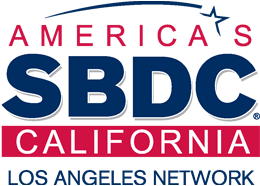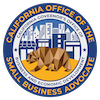Does your product do what your advertising claims it does? Perhaps you’ve invented or imported a product “that will remove even the toughest carpet stain in 10 minutes – guaranteed!” Can you stand behind that claim in a court of law?
Even if you don’t realize that your claims are false, the Federal Trade Commission (FTC) or your state government can take action against you for non-compliance with marketing and advertising laws.
Take for example an actual case scenario (described in this FTC blog post) in which the FTC challenged claims for “Rest Easy,” a natural product available nationwide that claimed to “Kill & Repel Bed Bugs… Rest Easy is HIGHLY effective, killing 90% of bedbugs within 2 seconds of contact, and the rest within 30 minutes…”
According to the FTC, the company behind the product and its corporate officers had no sound science to back up their promises. Under the settlement — which included a $264,976 judgment— the business needed “competent and reliable scientific evidence to support performance or efficacy claims they make about Rest Easy or any pesticide they market in the future.”
So what do advertising laws require you to do when you market your product, promotions or services? Here’s what you need to know:
Federal Truth-in-Advertising Laws
To ensure your business is in compliance with the Federal Trade Commission Act, follow the following rules:
- Your advertising must be truthful and non-deceptive – This means it must not contain information that is misleading or omit information that can influence a buyer’s decision.
Example: You must have proof to back up both express (explicit) and implied claims that consumers take from an ad. For example, "ABC Mouthwash prevents colds" is an express claim that the product prevents colds. An implied claim is one made indirectly or by inference. "ABC Mouthwash kills the germs that cause colds" contains an implied claim that the product will prevent colds. Although the ad doesn't literally say the product prevents colds, it would be reasonable for a consumer to conclude from the statement "kills the germs that cause colds" that the product prevents colds.
The same applies when you make claims about free offers such as “buy one get one free” or “buy ABC and get XYZ free.” Be clear about limitations and disclose your terms and conditions.
- The evidence must back up your advertising claims – This means you’ll need objective evidence to support your claims. The kind of evidence depends on the claim – at a minimum you must have the level of evidence you say you have.
Example: The statement "Two out of three doctors recommend ABC Pain Reliever" must be supported by a reliable survey to that effect. If the ad isn't specific, the FTC looks at several factors to determine what level of proof is necessary, including what experts in the field think is needed to support the claim. In most cases, these ads need to be supported by tests, studies or other scientific evidence that has been evaluated by people qualified to review it using acceptable, accurate methods.
- Advertisements cannot be unfair – For example, don’t knock what your competitors have to offer by using false or misleading information.
State and Local Truth-in-Advertising Laws
Next, confirm that you are not violating state and local truth-in-advertising laws. For example, some states expect you to have enough stock in inventory to meet demand for advertised products. If you don’t, then your ad needs to state that quantities are limited. USA.gov provides links to state and local consumer agencies responsible for enforcing truth-in-advertising and related consumer protection laws.
In a Nutshell
The next time you brainstorm your advertising claims, have the following checklist in mind:
- Be accurate – Deceiving or misleading your consumers is illegal. And it’s not just your words; your product imagery should be accurate, too.
- Get permission for endorsements, quotes or whenever you choose to mention a person or organization’s name.
- Be fair to your competitors and accurate in your claims about what your product does and what theirs does not.
- Watch your pricing claims – Many retailers make cost comparisons to entice consumers. Whatever you do, don’t make untruthful claims or comparisons on this one.
- Claims likely to raise a red flag at the FTC – The FTC pays closest attention to advertising claims about health or safety, such as: “ABC will reduce the risk of skin cancer” and ads that make claims consumers would have trouble evaluating themselves, such as: “ABC refrigerators will reduce your energy costs by 25 percent.”
More Information
- Truth-in-advertising doesn’t just affect your ad claims. Read more about marketing to children, green marketing, product labeling, “Made in the USA” claims and more in SBA’s Small Business Guide to Marketing and Advertising Law.
- Advertising FAQ's: A Guide for Small Business (FTC)
- “Great Service, Will Use Again”: How to Use Customer Testimonials to Market Your Business





